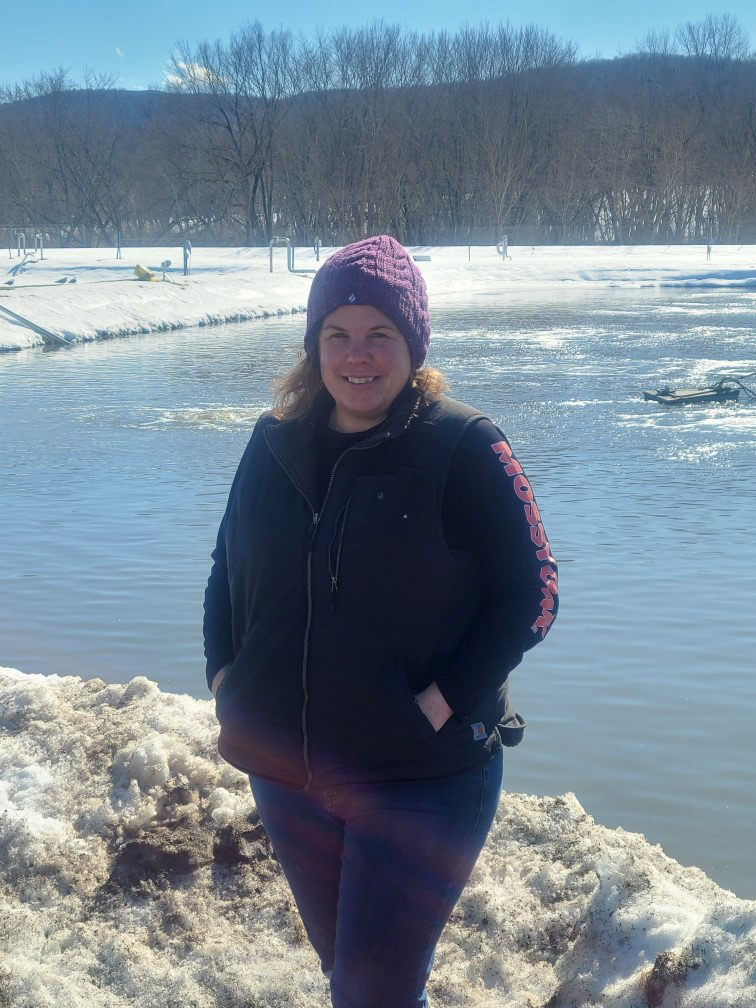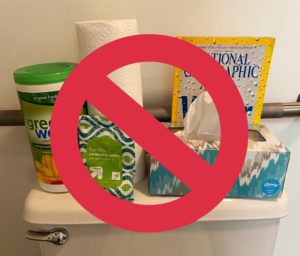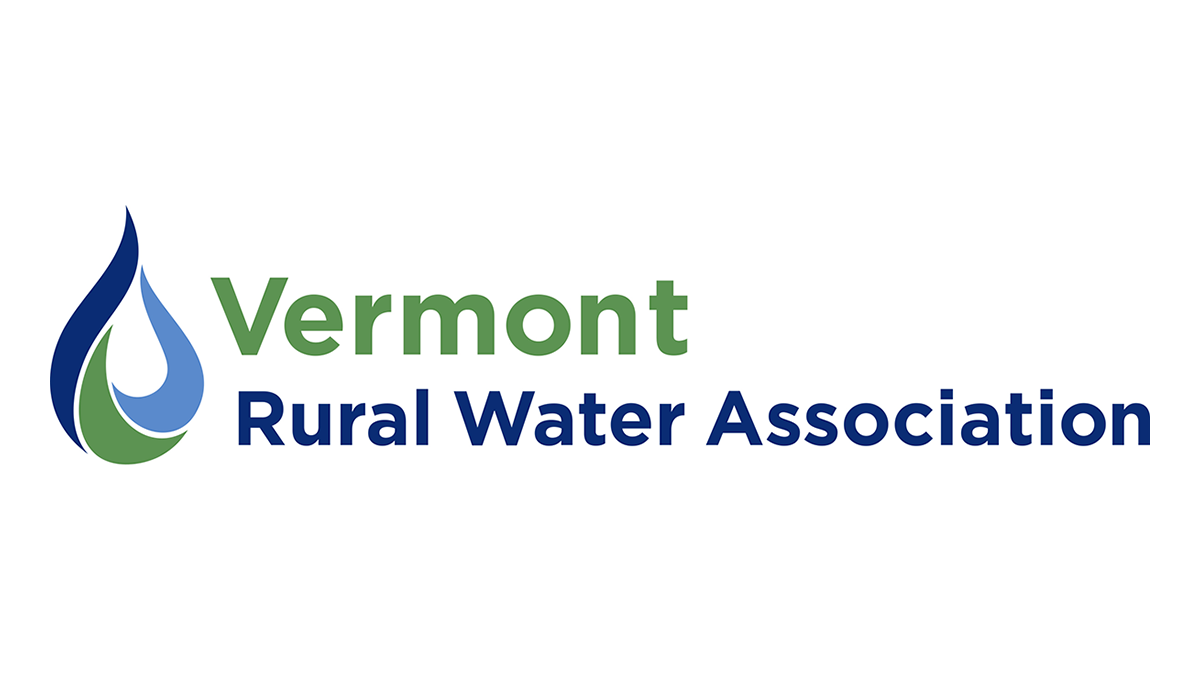
April Busfield at a lagoon at the Canaan WWTF.
Job: Chief operator for Canaan and Stewartstown wastewater treatment facility, Canaan Fire District 1, and Canaan Fire District 2
Tell us about your utility and its staff.
I have been the chief operator for water and wastewater in Canaan for nearly seven years now. The WWTF is unique in that it is owned by both Canaan, VT and Stewartstown, NH, and the two separate collection systems feed into it. This is a great example of how small towns can work together to have better infrastructure then they would individually.
The WWTF had a complete upgrade in 2014 which was when I came on full time. It is a lagoon system with septage receiving, fine screen, grit removal, and chlorine disinfection. The FD1 water system had a complete upgrade between 2016 and 2018, including distribution. It has an iron and manganese pure flow removal system and bigger reservoir as we send drinking water to West Stewartstown NH. We also supply the Coos County Nursing Home in Stewartstown. The FD2 water system had a reservoir and distribution upgrade in 2014.
We have two full-time staff, myself and Brian Bissonnette, who also works for the highway department. We also have two backups for emergencies, Kevin McKinnon and Chester Smart. We work great as a team and we would be lost without each other. We all have different skill sets and balance each other well.
What strengths and challenges does your system face?
Canaan is a very proactive town to work for. Money is always an issue like every town but if we need to do something, the boards always see the importance in doing what is best to keep the utility running without hiccups. Sometimes figuring out what to work on or what has priority is tricky, but you take it one day at a time.

We have a problem [with flushable wipes causing clogs]. We have to constantly pull pumps and it wears out our pumps, so has been very costly over the years. I wish people would understand that the convenience of flushing them down the toilet isn’t worth the thousands of dollars they are paying to have us working on clogs instead of preventative maintenance. We have done the flyers and public notices but until the word “flushable” is off the wipe packages, I feel all systems are stuck.
How has the pandemic impacted your work?
With only two people, if one of us gets sick the system is in big trouble. There are not many extra operators just hanging around. I am also the mother of a 5-year-old so if I must quarantine, I would not have daycare for nearly 20 days. I have never feared what kind of danger going to work could cause my family or what getting sick could risk for the town.
Through the pandemic everything has been business as usual… I am sad that water and wastewater operators are not seen as that essential. If the water system shuts down or sewer backs up in a hospital or school, I fear what will happen [if] there is nobody available to answer these calls.
We do this job because we care about our towns and want to deliver a good product.
What is your favorite part of the job?
I love helping people. I love giving tours and prior to COVID had a lot of school tours and even one intern. Most people look at this job and think it’s gross, but taking the time to change a person’s mind I find extremely rewarding.
Unfortunately, no matter how hard you try you get noticed more when the bad happens. It is much rarer when you can help with a small problem and make people happy.
What is your least favorite part of the job?
The short answer would be “flushable” wipes.
A more encompassing answer is the increasing stress the state and federal regulations put on small systems. It is now getting to the point that you need an administrative person to keep up with all the testing, reports, and updates of plans that are required. When you only have two people you cannot be in the field and at your desk at the same time. I know the regulating parties would say just hire more people, but especially now during a pandemic that is just not possible. It puts added stress on everybody doing every job.
This can be a hard job that gets little thanks—especially now. What keeps you going?
I do not think any of us do this because it is always fun. But we all do this because we care about our towns and their people and want to deliver a good product. It is a job that will never go away and the days you do get thanks really makes you feel accomplished, and it can make up for a lot of the bad days.
Do you have any advice for other water/wastewater operators in Vermont?
Just like anything I feel this job is an artform. It takes years to find any kind of a groove. It took a long time for me to come to work confident in my abilities. When you start excelling some days are such an adrenaline rush and your job is rewarding.
You must stick with it and have a good network to call. Especially in a small system with limited personnel and materials to fix things. My mentor always told me, “You don’t have to be able to fix it yourself, you just have to know who to call to get it done with the least impact on the public possible.” If you are new and don’t know who to call just call other towns or VRWA. We are our own greatest resource; nobody knows better what we are dealing with than each other. I know every one of us would help an operator in need.
Thank you, April, and to all of Vermont’s water and wastewater heroes who continue performing essential services to protect the health and environment of our communities!
Do you know a Water Hero who should be featured here? Email info@vtruralwater.org
Interview has been edited for accuracy and clarity.

